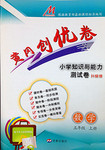7.Most parents of kids under age 8don't worry about how much time they spend watching TV or using other media,from computers to smart phones to tablets PCs,according to a new survey that found a child's use of media often reflects how much time parents spend in the similar way.
¨We generally found that media use is not a source of conflict in the home"for families with young children,Ellen Wartella,a researcher from Northwestem University,told USA Today. She led a survey of 2,326parents who have children 8and younger.It found that in 80percent of families,children's media use was not a problem,with 55percent"not too"or"not at all"concerned about it. It also showed parents have more positive than negative feelings about how media consumption affects a child's learning and the development of creativity.The exception is video games,which are viewed more negatively than TV,computers or mobile devices."Parents rated video games as more likely to have a negative effect on children's school performance,attention time,creativity,social skills,behavior and sleep than any other medium,"the researchers said in a news conference about the survey.
¨The findings exposes a generational shift (轉移) in parental attitudes about technology's role in young children's lives,"said Wartella."Today's parents grew up with technology as a central pact of their lives,so they think about it differently than earlier generations of parents,instead of a battle with kids on one side and parents on the other,the use of media and technology has become a family affair."
The researchers identified three media environments created by parents:media-centric (39percent of families),media-moderate (45%)and media-light (16%). Children in media-centric families spend at least three hours more each day watching TV or using computers,video games and tablet PCs don't make parenting easier.And 88percent of parents say they are most likely to turn to toys or activities to keep their children occupied.Slightly fewer turn to books (79%) and TV(78%).
The survey didn't look at how media affects children. That's a topic that the American Academy of Pediatrics has handled a number of times. The AAP says studies have found too much media use can lead to attention-problems,school difficulties,sleep and eating disorders and being fat. In addition,the Internet and cell phones can provide platforms for illegal and risky behaviors.¨By limiting screen time and offering educational media and non-electronic formats (格式)such as books,newspapers and board games,and watching television with their children,parents can help guide their children's media experience. Putting questionable content into context and teaching kids a700ut advertising contributes to their media literacy (素養),"it says.
The pediatricians'group says parents should have"screen-free zones"and TV should be turned off during dinner. At most,it recommends children and teens engage with entertainment media for no more than two hours a day and that should be high-quality content. It is important for kids to spend time on outdoor play,reading,hobbies and using their imaginations in free play."Kids under 2should not use television and other entertainment media because their brains are developing quickly and they learn best from direct human interaction,"the group says.
An article on screen time by t.he Mayo Clinic also notes problems linked t.o over screen time,including being fat,irregular sleep,behavioral problems,weak school performance,violence and less time for active and creative play.
50.Parents have more negative than positive feelings about media consumption likeC.
A.computers B.smart phones
C.video games D.tablets PCs
51.Most parents don't worry about kid's media use becauseC.
A.they can limit the screen time
B.they want their children happy
C.they also grew up with technology
D.they can teach their children themselves
52.From the data of the survey,we learnD.
A.children in media-centric families are smarter than others
B.children in media-light families spend one hour watching TV
C.more than half of the parents think children's media use was a problem
D.media-centric children spend more than three hours each day on media use
53.To make parenting easier,most parents probablyD.
A.try to persuade their children to read books
B.ask their children questions while watching TV
C.allow their children watching TV or using computers
D.turn to toys or activities to keep their children occupied
54.Which of the following is a suggestion by the researchers?B
A.Media use time for babies under 2should be limited.
B.Entertainment media use should be high-quality content.
C.Schools should provide more time for active and creative play.
D.Home media use should provide platforms for illegal and risky behaviors.
分析 本文是一篇科教文.文章講述了孩子使用媒體的經歷與父母有關,而這一代伴隨著科技長大的父母并不擔心孩子沉迷這些電子設備.
解答 50.C 細節理解題.根據第二段的It also showed parents have more positive than negative feelings about how media consumption affects a child's learning and the development of creativity.The exception is video games,which are viewed more negatively than TV,computers or mobile devices.可知,視頻游戲比電視、電腦、手機更有負面的影響,故選C項.
51.C 細節理解題.根據第三段的Today's parents grew up with technology as a central pact of their lives,so they think about it differently than earlier generations of parents.可知,如今的父母就是伴隨著科技長大的,所以與以前的父母不一樣,他們并不擔心科技對孩子的影響,故選C項.
53.D 細節推理題.根據第四段的Children in media-centric families spend at least three hours more each day watching TV or using computers,video games and tablet PCs don't make parenting easier.可知,孩子用在電子設備的時間超過三小時,故選項D正確.
54.D 細節理解題.根據第四段的And 88 percent of parents say they are most likely to turn to toys or activities to keep their children occupied.可知,大多數的家長會讓孩子玩玩具或參加活動,讓孩子有事做,從而讓自己更輕松,故選D項.
55.B 細節理解題.根據倒數第二段的At most,it recommends children and teens engage with entertainment media for no more than two hours a day and that should be high-quality content.可知,研究人員建議青少年每天用于娛樂媒體的時間少于二個小時,同時,內容應該是高質量的,故選B項.
點評 1、要想做好科教文英語閱讀理解題,平時要多閱讀科普知識類文章,學習科普知識,積累常見的科普詞匯,從根本上提高閱讀能力.
2、要熟悉科普類文章的結構特點.科普類文章一般由標題(Head line),導語(Introduction),背景(Back ground),主體(Main body)和結尾(End)五部分構成.標題是文章中心思想高度而又精辟的概括,但根據歷年的高考情況來看,這類閱讀理解材料一般不給標題,而要同學們選擇標題.導語一般位于整篇文章的首段.背景交待一個事實的起因.主體則對導語概括的事實進行詳細敘述,這一部分命題往往最多,因此,閱讀時,同學們要把這部分作為重點.結尾往往也是中心思想的概括,并與導語相呼應,命題者常在此要設計一道推理判斷題.
3、在進行推理和理解時,一定要以閱讀材料所提供的科學事實為依據,同時所得出的結論還應符合基本的常識,切勿隨主觀意識隨意猜測.



 黃岡創優卷系列答案
黃岡創優卷系列答案